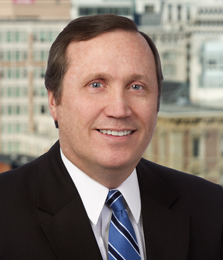 Progressive Voice is a weekly opinion column. The views and opinions expressed in the column are those of the individual authors and do not necessarily reflect the views of their organizations or ARLnow.com.
Progressive Voice is a weekly opinion column. The views and opinions expressed in the column are those of the individual authors and do not necessarily reflect the views of their organizations or ARLnow.com.
The tragic deaths last week in Baton Rouge, Falcon Heights, and Dallas, which followed the recent horrific killing of 50 in Orlando, shook the nation.
In Orlando, it was the scale of the killings and the targeting of LGBT community members. In Dallas, it was seeing law enforcement officers targeted for death based on the color of their skin. In Baton Rouge and St. Paul, it was the sight of two more African-American men killed by law enforcement officers for — based on eyewitness and video evidence — no discernible reason.
For a brief time, it appeared that these latest killings would lead to a discussion more fundamental than whether or how gun laws should be changed. There was a sense that we needed to bridge divisions in our society that were taking a dangerous turn.
Columnists, political analysts and other commentators wrote about an inflection point in our recent history – where there was room for unity, acknowledging the complexity of our problems, and a need for more listening, more humility, and less hostility and angry rhetoric.
Close to home, ARLnow was part of that trend, stating that “[t]imes like these remind us of the darker side of humanity — but should inspire us to counter that with kindness and respect for our fellow humans. Here in our little 25.98 square mile Arlington bubble, we hope that that extends to our comment section.”
Our two most recent Presidents sought to convey the message as well. President George W. Bush, at the memorial service in Dallas for the five fallen police officers cautioned that “[t]oo often we judge other groups by their worst examples, while judging ourselves by our best intentions.”
President Obama expanded on this theme: “[W]ith an open heart, we can learn to stand in each other’s shoes and look at the world through each other’s eyes … With an open heart, we can abandon the overheated rhetoric and the oversimplification that reduces whole categories of our fellow Americans not just to opponents, but to enemies.”
Yet even in the midst of these words, in a country in need of healing, the public discourse devolved yet again. Instead of encouraging the hard work that will be needed to resolve problems faced by our communities and our nation, we were presented with division, rancor, finger pointing, and the notion that there are only two sides to every debate, that people must choose which side they are on, that those who would choose the other side are enemies, and that only by defeating those enemies will we restore peace, order, and greatness.
The reality is that we live in complicated times that demand from our citizenry a sober minded reflection on how Americans can come together to address those challenges and move our country forward.
This will take hard work, resources, listening to and respecting one another, and seeking solutions that bind us together and elevate our society and ourselves.
In times past, we may have looked to great leaders for guidance.
Speaking of toleration, George Washington said that “the Government of the United States, which gives to bigotry no sanction, to persecution no assistance, requires only that they who live under its protection should demean themselves as good citizens…”.
Lincoln sought to bring together a nation that had devolved into civil war not by triumphalism, but through humility and understanding: “With malice toward none, with charity for all, with firmness in the right as God gives us to see the right, let us strive on to finish the work we are in, to bind up the nation’s wounds…”.
Roosevelt, at a time when the nation faced economic devastation, asserted his “firm belief that the only thing we have to fear is fear itself … In every dark hour of our national life a leadership of frankness and vigor has met with that understanding and support of the people themselves which is essential to victory.”
Today we live in a time where leadership is viewed with skepticism, where institutions face a lack of trust, and individuals are free to assert their views widely and without filter.
In such a time, it will take asking ourselves how we can take individual actions to restore a sense of unity, purpose and advancement.
Respecting the views of others, watching the tone of our own discourse, countering division and ideologies, and supporting the hard work needed to address our problems, are building blocks needed for recovery and for success.
Larry Roberts has been active in civic and political life in Arlington for nearly 30 years and is an attorney in private practice. He has been active in County civic life. He also chaired two successful statewide campaigns, served as Counselor to the Governor in Richmond, and served as Chief of Staff to the Chairman of the Democratic National Committee.

